facialrecognition
Latest
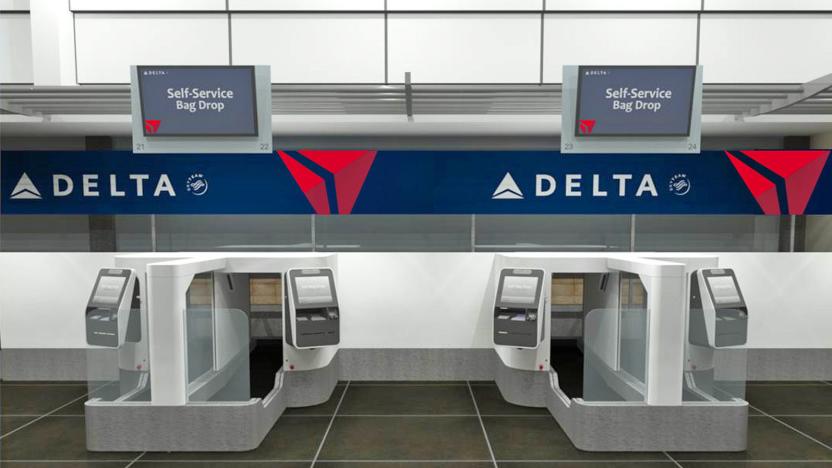
Delta will test face-scanning for checked baggage this summer (updated)
This summer, Delta will test a facial recognition system for checking luggage. The airline says that the move is an effort to save customers time and further streamline the pre-flight process. "One machine will be equipped to test facial recognition technology to match customers with their passport photos through identification verification," the press release says.
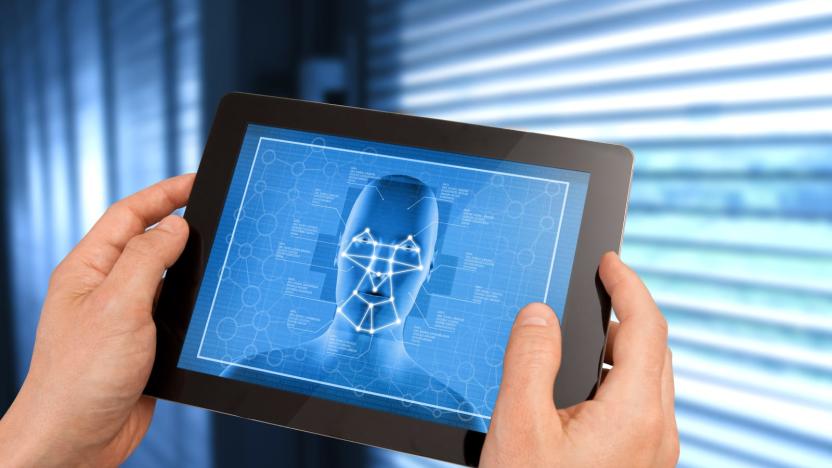
Baidu AI helps parents find their abducted son 27 years later
Facial recognition tech has loads of application other than the creepy ones that put your privacy at risk. In China, for instance, it has helped a couple find their son 27 years after he was abducted. Fu Gui thought it was strange that he only had vague memories of his childhood, so he uploaded a photo taken when he was 10 years old to a website called Baobeihuijia, which translates to "Baby Come Home." Little did he know that his parents would also upload his childhood photos on the website a few months later and that Baidu's facial recognition tech would bring them back together.
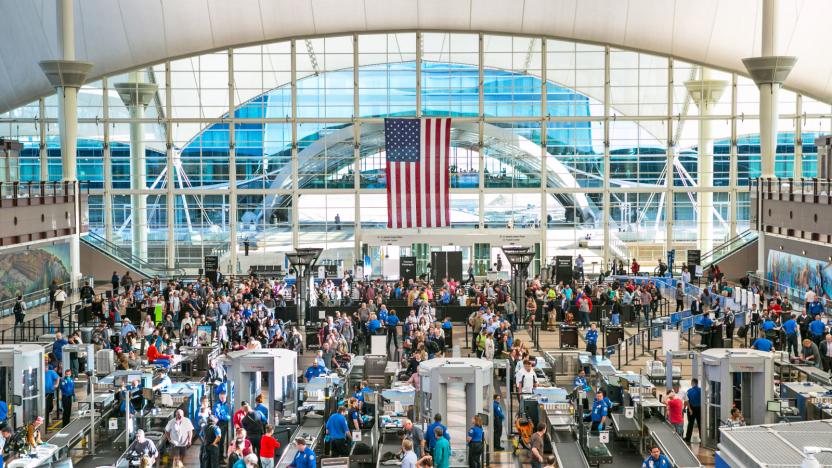
Airports may use face recognition to screen US citizens (update: more info)
Right now, the US is trotting out an airport security plan revolving around facial recognition. It's supposed to automatically register visitors to the US when they leave, and signal when they come back. However, Customs and Border Protection now wants to expand the effort to include virtually every situation where you normally need an ID -- and that could include scanning US citizens. The agency's John Wagner has floated the possibility that face recognition could also be used to scan all arrivals, TSA checkpoints and lounge access, including citizens. CBP hasn't committed to a firm plan, but it tells The Verge it wants to "open the dialogue" to people outside its walls.
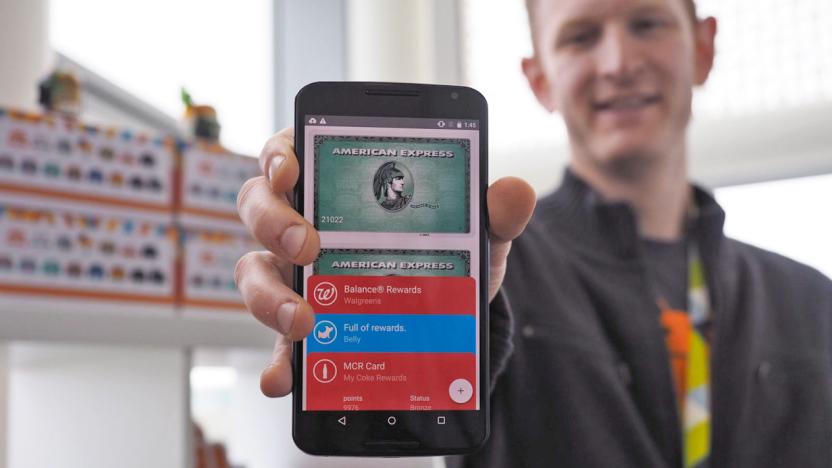
Android Pay could use your face to authenticate loyalty programs
It's not that hard to add points to your loyalty cards on Android Pay, but it looks like Google is mulling on an experimental feature to automate the process. 9to5google has torn the latest version of the app apart and found lines of code that hint at a feature called "Visual ID," which authenticates your loyalty points by using facial recognition. Based on the strings the publication found, you'll have to create a "face template" when you activate the feature. Participating stores that have Visual ID cameras installed will then confirm your identity when you walk in. Once the system determines that it's you, and it ascertains your location using Bluetooth, Google will send them your loyalty details.

NYPD faces lawsuit for withholding info on facial recognition
A think tank is suing the NYPD over its failure to reveal details about its secret facial recognition program. Georgetown University's Center on Privacy and Technology (CPT) alleges that the department hasn't complied with New York state's Freedom of Information Law (FOIL) by forking over information on the system, which the department started using to investigate crimes in 2011. When groups submitted FOIL requests for training manuals and documentation, the NYPD insisted they didn't have any, so CPT is taking the department to court.

Police will scan every fan's face at the Champions League final
If you're headed to the UEFA Champions League final in Cardiff on June 3rd, you might just be part of a massive experiment in security -- and a privacy uproar. South Wales Police are conducting a face recognition trial that could scan every one of the 170,000 visitors expected to show up in the city for the match, whether or not they're heading to the stadium. Cameras around both the stadium and Cardiff's main train station will compare faces against a police database of 500,000 people of interest. If there's a match, police will get a heads-up that could help them stop a terrorist or frequent hooligan.

FBI's facial recognition database is dangerously inaccurate
Despite law enforcement's attempt to conceal its existence, it's no secret that half of Americans over the age of 18 -- 117 million people in total -- are part of a massive facial recognition database, their personal information culled from DMV files in 18 states. A staggering 80 percent of the people in the database don't have any sort of arrest record. Yet, the system's recognition algorithm inaccurately identifies them during criminal searches 15 percent of the time with black women most often being misidentified, the House Committee on Oversight and Government Reform heard last week.
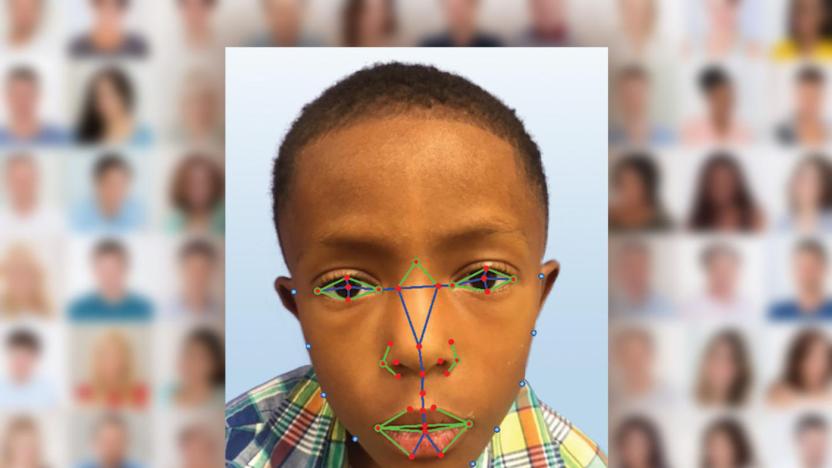
Facial recognition will help doctors detect rare genetic disease
A group of scientists have used facial recognition for something other than verifying identity or catching crooks on the run. The team from the National Human Genome Research Institute have developed a facial recognition method that can diagnose a rare genetic condition called DiGeorge syndrome in non-Caucasian populations. See, DiGeorge, which is caused by the deletion of a tiny segment in chromosome 22, leads to a number of medical complications and cognitive conditions that make it hard to diagnose. While it also comes with a characteristic facial appearance that should make it easy to detect, it varies widely across ethnicities.
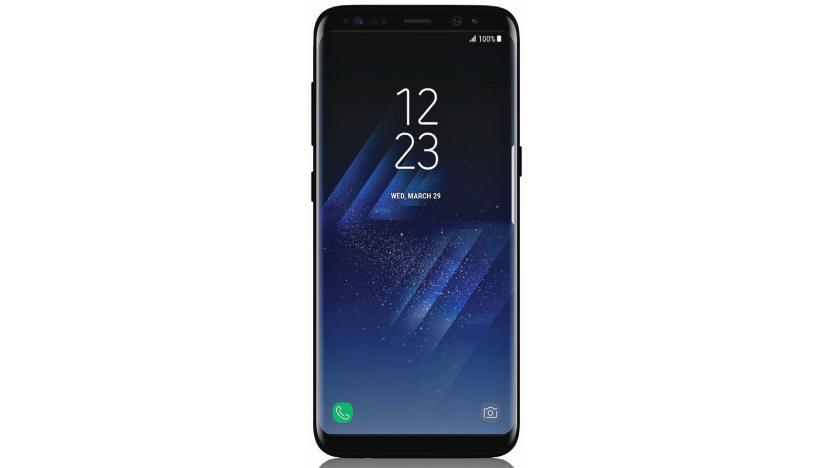
The Galaxy S8 may use your face for secure mobile payments
Facial recognition is a done thing. So are contactless payments. So why not put them together? Samsung might do just that according to Bloomberg sources. The incoming Galaxy S8 will reportedly feature facial recognition payment tech "within months of release" in a bid to stand out (and grab those feature headlines) in a world where lots of us are plenty happy with our current smartphones.
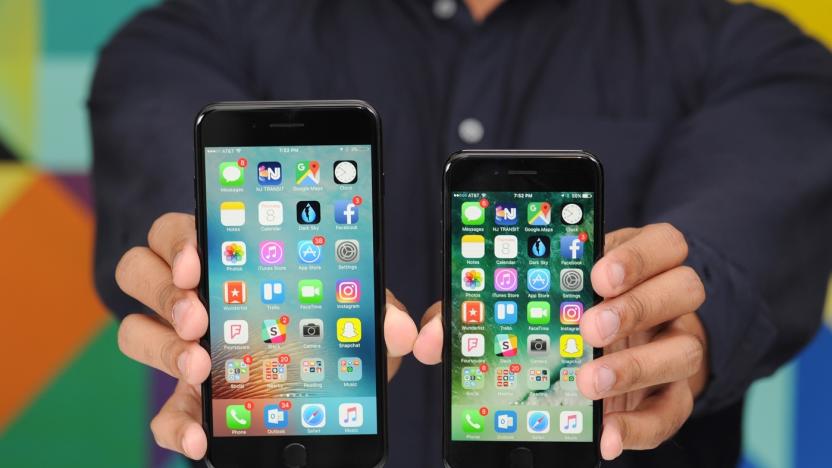
Next iPhone might have depth-sensing front camera
It's that time of year, folks. Rumors of what the next iPhone will be like are coming in hot and heavy. Last week, well-connected Apple analyst Ming-Chi Kuo noted that the new handsets would nix the home button for a touch-friendly "function area." Now there's another bit of info. In a KGI Securities report detailed by 9to5Mac, the analyst explains that the upcoming OLED iPhone will feature a "revolutionary" front camera that's capable of sensing 3D space via infrared.
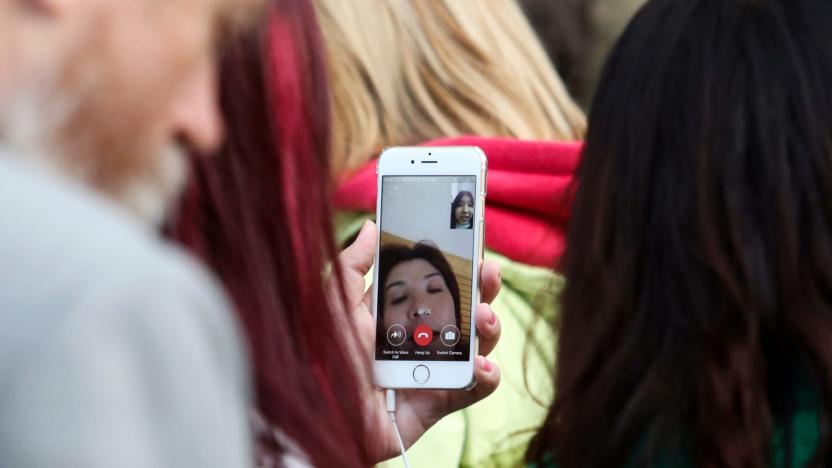
Apple reportedly buys an AI-based face recognition startup
Those rumors of Apple exploring facial recognition for sign-ins might just have some merit. Calcalist reports that Apple has acquired RealFace, an Israeli startup that developed deep learning-based face authentication technology. The terms of the deal aren't public, but it's estimated at "several million dollars." Cupertino would mainly be interested in the promise of the technology than pure resources, in other words.
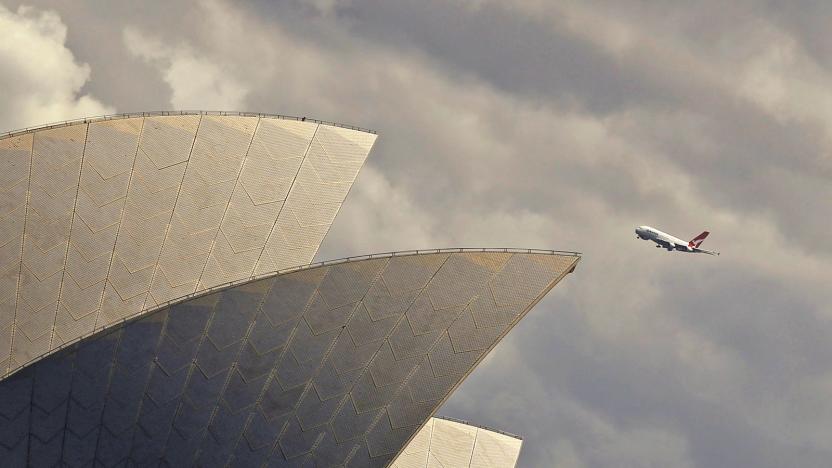
Facial recognition will replace passports in Australia
Australia has started implementing biometric facial, iris and fingerprint recognition in airports, allowing passengers to go through without showing a passport or even talking to anyone. The "Seamless Traveler" project is aimed at creating a "fast, seamless self-processing experience for up to 90 percent of travelers," so that border control can focus on high-risk passengers. The handy, but invasive-sounding plan would allow international travelers to "literally just walk out like at a domestic airport," security analyst John Coyne told Australia's Sydney Morning Herald.

WooHoo is an Echo with a touchscreen, facial recognition and more
We're beginning to see a trend here at CES. A ton of companies are either injecting their tech with a dose of Alexa or building their own Amazon Echo competitors from scratch. SmartBeings falls into the latter category, but its WooHoo device packs a lot more punch than the online retailer's smart speaker. WooHoo can do some of the things Echo handles, but it's also equipped with both facial and voice recognition, Android-powered software and a 7-inch touchscreen. Oh, yeah, and it's a full-on IoT hub for all of your smart home tech.
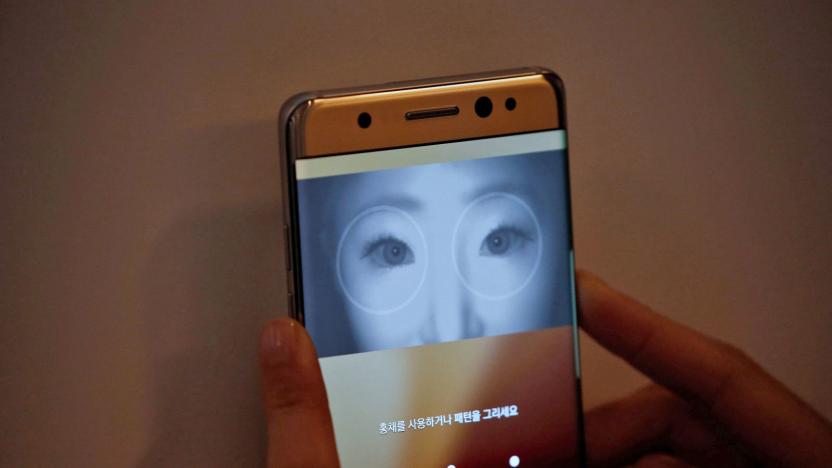
Synaptics combines face and fingerprint recognition on your phone
Fingerprint readers and facial recognition techniques are good for adding a base level of security to your phone without sacrificing convenience. However, they have their limits. It can be hard to switch between methods on a whim, and dedicated intruders can get through if they either make you unlock your phone or develop convincing fakes. Synaptics thinks it has a solution: It's unveiling a "biometric fusion engine" that can combine results from face and fingerprint detection before letting you into a mobile device or PC. Ideally, this makes it easier to sign in even as it adds an extra layer of security.

MIT's AI figured out how humans recognize faces
It appears machines may already be catching up to humans, at least in the world of computational biology. A team of researchers at the MIT-based Center for Brains, Minds and Machines (CBMM) found that the system they designed to recognize faces had spontaneously come up with a step that can identify portraits regardless of the rotation of the face. This adds credence to a previous theory about how humans recognize faces that was based studies of MRIs of primate brains.

Disney makes facial capture tech more practical for movies
If you don't see facial motion capture everywhere in movies and video games, there's probably a good reason for it. In order to train a capture system to match expressions, you frequently have to record the actor making all kinds of faces in different conditions... that's a lot of effort, especially for studios that don't have much time or money. Disney Research has a better way. It recently developed a face capture system that uses only a tiny number of recordings and synthetically generates the data you need to train the system. The solution is a uniformly-lit multi-camera rig (only one camera is active, the rest are for lighting) that creates an adjustable 3D model of the actor's face that you can use to create the info you need.

ICYMI: Orbital space junk is putting us in jeopardy
try{document.getElementById("aol-cms-player-1").style.display="none";}catch(e){}Today on In Case You Missed It: The US Air Force is moving its Space Surveillance Telescope to Australia to track space junk littering geosynchronous orbit. That's the orbit 22,000 miles away from our planet where satellites mirror the Earth's rotation so that they don't appear to move. The Department of Justice story about facial recognition is here, while that darling sneezing baby (who eschews costumes) is here. If you enjoy the cartoon humor that is an engine giving up on a job, that's here. As always, please share any interesting tech or science videos you find by using the #ICYMI hashtag on Twitter for @mskerryd.

Cops' facial recognition database has half of US adults on file
American law enforcement agencies have created a massive facial recognition database. If you're an adult in the US, you might already be in it. According to a comprehensive report by the Center for Privacy & Technology at Georgetown Law, the law enforcement's database has 117 million American adults on file. That's one of two adults in the US or half of the 18-and-above population. The report says authorities used driver's license IDs from 26 states to build the database, which includes people who've never committed any kind of crime before.
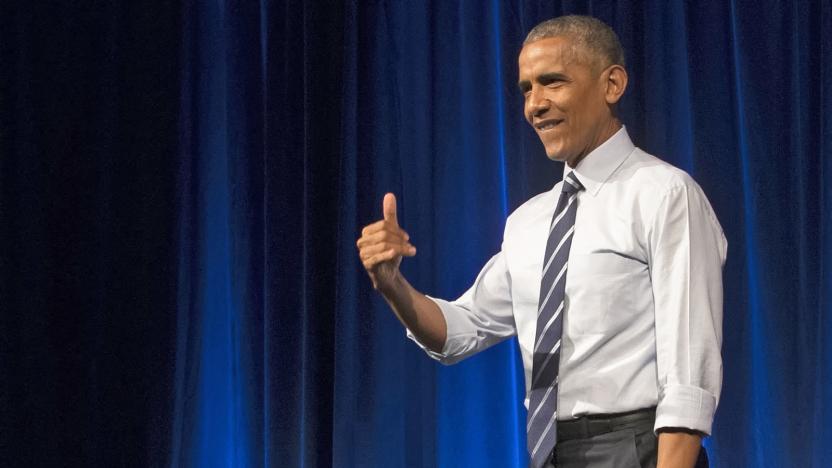
Recommended Reading: President Obama on science and innovation
Barack Obama: Now Is the Greatest Time to Be Alive President Barack Obama, Wired The White House Frontiers Conference took place this week to "explore the future of innovation here and around the world." President Obama is also guest editor for the November issue of Wired where he discusses science and other advancements in both essay and interview form. Above is the president's writing on technology and more. There's also a joint interview with MIT's Joi Ito where the two discuss AI, self-driving cars and and other futuristic topics with Wired's Scott Dadich.

Google Photos will animate your videos too
The latest AI-powered upgrade for Google Photos brings four tricks. In a blog post today, we learned about four new features for the service, including the simplest one, which autodetects sideways pictures and prompts you to correct them. Two others dig into its talent for facial recognition, as it will detect people in your new photos, and offer to "rediscover old memories" of those same people in older pics, or, it can pop up a highlight reel showcasing the best pictures of a frequent subject.










